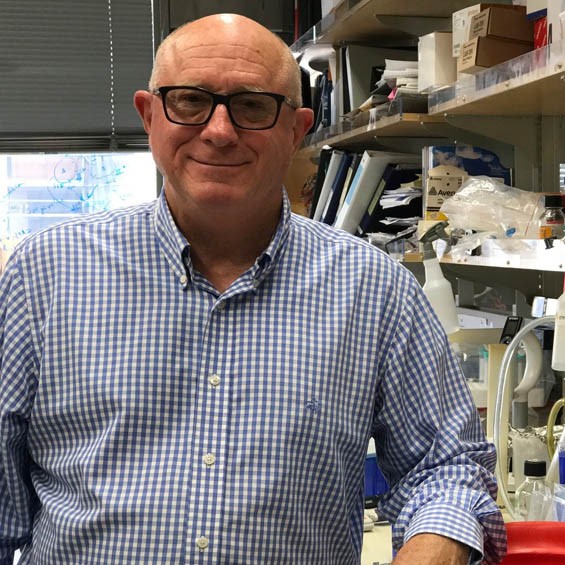Two Damon Runyon alumni have been awarded the 2019 Lasker Awards, which “honor innovations that have advanced knowledge, treatment, or prevention of disease,” and are considered to be one of the highest international honors in medical research.
 H. Michael Shepard, PhD (Damon Runyon Fellow ’78-’80), at Biooncology Consultants LLC in San Diego, shares the prize for the Lasker-DeBakey Clinical Medical Research Award. He and his colleagues are being honored for the invention of the breast cancer drug Herceptin which has treated 2.3 million patients to date.
H. Michael Shepard, PhD (Damon Runyon Fellow ’78-’80), at Biooncology Consultants LLC in San Diego, shares the prize for the Lasker-DeBakey Clinical Medical Research Award. He and his colleagues are being honored for the invention of the breast cancer drug Herceptin which has treated 2.3 million patients to date.
Herceptin is the first monoclonal antibody therapy that targets the cancer-causing protein HER2 on the surface of breast cancer cells. Dr. Shepard conducted his research in the 1980’s at the biotech company Genentech, identifying HER2 as a driver of breast cancer and demonstrating the potential of this novel therapy to effectively treat women with HER2-positive breast cancers. Herceptin transformed care for breast cancer when it was approved in 1998.
To read Dr. Shepard's account of the Herceptin journey, visit: The Team that Just Wouldn’t Quit and a New Paradigm in Cancer Drug Discovery. “The most important lessons to be learned from the trastuzumab [Herceptin] story are the tremendous value of dedicated teams of visionary researchers determined to make a difference in the world and the value of collaborations between scientists in all kinds of private and public institutions.”
 Jacques F.A.P. Miller, PhD (Damon Runyon Grantee ’73-’75), an emeritus professor at the Walter and Eliza Hall Institute of Medical Research in Australia, shares the award for the Albert Lasker Basic Medical Research Award. In work that began around 1960, Dr. Miller showed that the thymus, previously thought to be a vestigial organ, is essential for immune function. Dr. Miller and colleagues demonstrated that there are two distinct cell lineages in the adaptive immune system: B cells and T cells. B cells develop in the bone marrow and produce antibodies in response to pathogens, disabling them or tagging them to be destroyed. T cells mature in the thymus gland and help alert B cells to the presence of pathogens; they can also detect and kill infected or abnormal cells.
Jacques F.A.P. Miller, PhD (Damon Runyon Grantee ’73-’75), an emeritus professor at the Walter and Eliza Hall Institute of Medical Research in Australia, shares the award for the Albert Lasker Basic Medical Research Award. In work that began around 1960, Dr. Miller showed that the thymus, previously thought to be a vestigial organ, is essential for immune function. Dr. Miller and colleagues demonstrated that there are two distinct cell lineages in the adaptive immune system: B cells and T cells. B cells develop in the bone marrow and produce antibodies in response to pathogens, disabling them or tagging them to be destroyed. T cells mature in the thymus gland and help alert B cells to the presence of pathogens; they can also detect and kill infected or abnormal cells.
This work set the stage for fundamental discoveries in immunology over the past 50 years, including vaccines, immunotherapy for cancer, treatment for bowel inflammation, organ transplant rejection and more. It also led to treatments for a wide range of illnesses, including cancer and autoimmune disorders.
To read Dr. Miller’s story visit: A Scientific Odyssey: Uncovering the Secrets of Thymus Function. “I…find it most rewarding to see that basic research on thymus function—first published in one of my papers in 1961, and on T and B cells a few years later—has sown the seeds that spawned the new era of immunotherapy, which can now claim a seat in the therapeutic pantheon of oncology, next to and perhaps about to supersede surgery, radiotherapy, and chemotherapy.”







